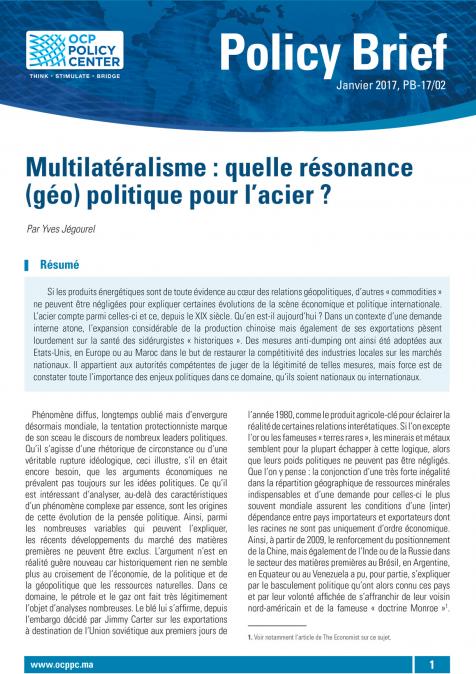Publications /
Policy Brief
Policy Brief
Deindustrialization and Employment in Morocco
November 1, 2018
This policy brief shows that the downward trend of employment in manufacturing in Morocco is due primarily to labor productivity improvement and that the increased deficit in manufacturing trade also plays an important role. While recognizing the crucial importance of a vibrant manufacturing sector in Morocco, this brief argues that Morocco cannot rely primarily on manufactures to “pull” labor out of agriculture. To provide more jobs, Moroccan policies should pay more attention to sectors which employ large numbers of people and where employment is expanding as a result of the ongoing structural transformation of the Moroccan economy.









